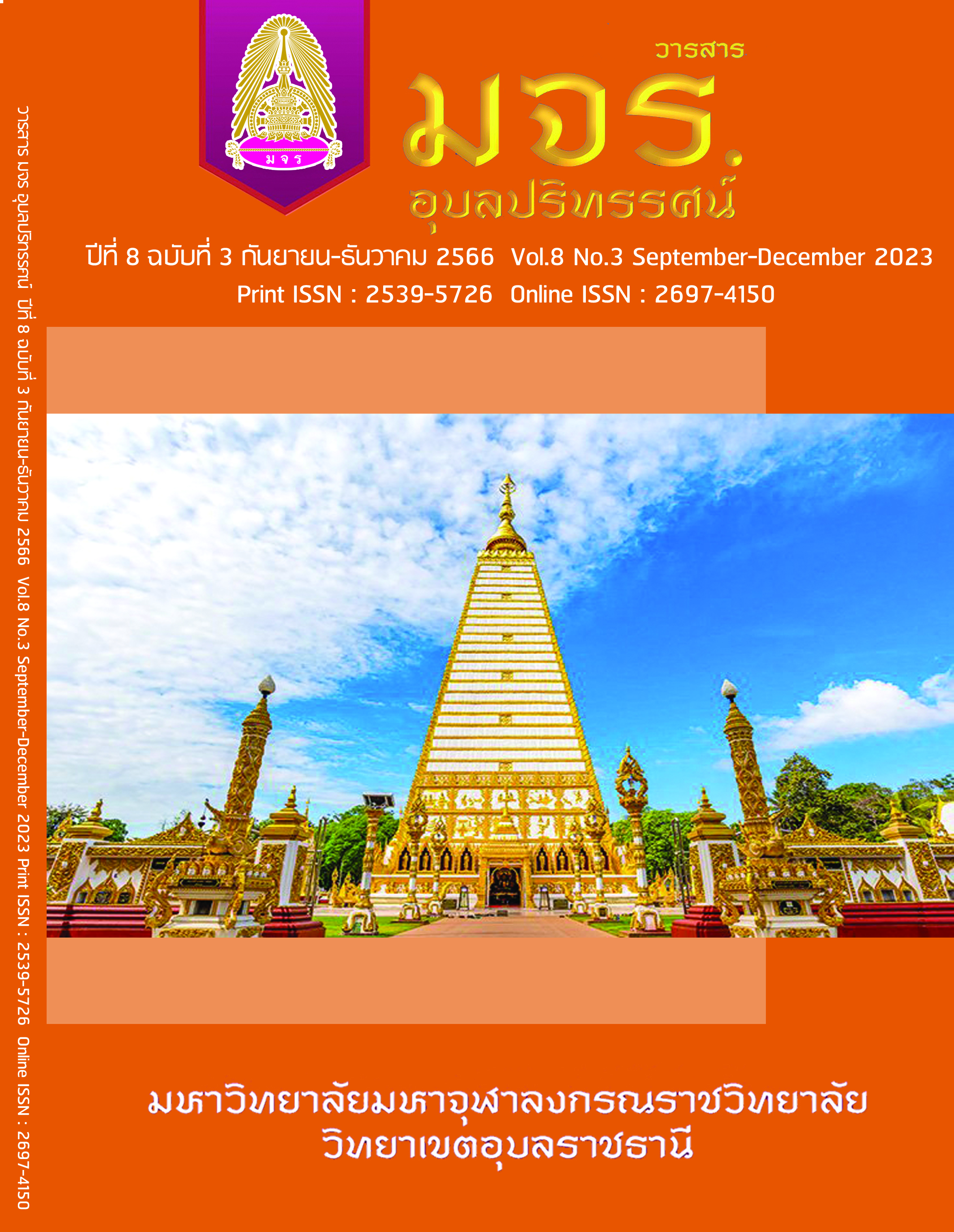SYNTHESIS OF 21ST CENTURY HUMAN RESOURCE MANAGEMENT KNOWLEDGE THROUGH PODCAST
Main Article Content
Abstract
The purpose of this research was to synthesize leadership knowledge in the 21st century through podcasts. The data used to synthesize leadership knowledge consisted of 44 podcast programs through analysis. Data from the QDA Miner program. A study found that 21st Century Leadership Knowledge through a podcast program found that the issue most relevant to leadership style was how to gain trust and trust. The area most relevant to leadership skills is communication, and the area most relevant to building leadership is building learning.
Article Details
References
กรรณิกา เรดมอนด์. (2559). ตัวบ่งชี้ทักษะภาวะผู้นำในศตวรรษที่ 21 สำหรับผู้บริหารสถานศึกษาขั้นพื้นฐาน. หลักสูตรศึกษาศาสตรดุษฎีบัณฑิต สาขาวิชาการบริหารการศึกษา คณะศึกษาศาสตร์ มหาวิทยาลัยมหามงกุฏราชวิทยาลัย.
แม๊กซ์เวลล์, จอห์น ซี. (2552). ความสำเร็จ สร้างได้ทุกวัน. แปลและเรียบเรียงโดย อิทธิพน เรืองศรี. กรุงเทพฯ: ดีเอ็มจี.
สำนักงานคณะกรรมการข้าราชการพลเรือน.(2560).ข้าราชการไทยกับการขับเคลื่อนสู่ประเทศไทย 4.0 .สืบค้นเมื่อ 8 มิถุนายน 2564, จาก https://www.ocsc.go.th/sites/default/files/ attachment/page/civil_officer_th_4.0.pdf.
อานวัฒน์ บุตรจันทร์. (2552). ผลของการสอนเสริมด้วยพอดคาสต์โดยใช้กลวิธีในการกำกับตนเอง ในรายวิชาการผลิตสื่ออิเล็กทรอนิกส์ เพื่อการศึกษาที่มีต่อผลสัมฤทธิ์ทางการเรียนและการกำกับตนเองของนิสิตระดับปริญญาบัณฑิต.บัณฑิตวิทยาลัย: จุฬาลงกรณ์มหาวิทยาลัย
Becker, Gary S. (1993). Human Capital: A Theoretical and Empirical Analysis with Special Reference to Education, 3rd ed., Chicago: University of Chicago Press.
Contino, Diana S. (2004, June 1). Leadership Competencies: Knowledge, Skills, and Aptitudes Nurses Need to Lead Organizations Effectively. Critical Care Nurse, 24 (3): 52-64.
Dirks, K. T., & Ferrin, D. L. (2002). Trust in leadership: Meta-analytic findings and implications for research and practice. Journal of Applied Psychology, 87(4) ,611- 628.
Geoghegan, Michael,W., Klass, Dan. (2007). Podcast Solutions: The Complete Guide to Audio and Video Podcasting. USA: Friendsof OR SEC ED.USA.APRESS.
Harrison, R. (2002). Learning and Development. London,CIPD.
Hughes, C. (2010). People as technology conceptual model: Towards a new value creation paradigm for strategic human resource development. Human Resource Development Review, 9(1), 48-71..
McAllister, D. J. (1995). Affect- and cognition based-trust as foundations for interpersonal cooperation in organizations. Academy of Management Journal, 38(1), 24-59.
McWhorter, R. R., & Delello, J. A. (2015). Green computing through virtual learning environments. In F. Nafukho (Ed.), Integrating technology into higher education and in the workplace (pp. 1-28). Hershey, PA: IGI Global.
Mishra, A. K. (1996). Organizational responses to crisis: Centrality of trust. Sage.

